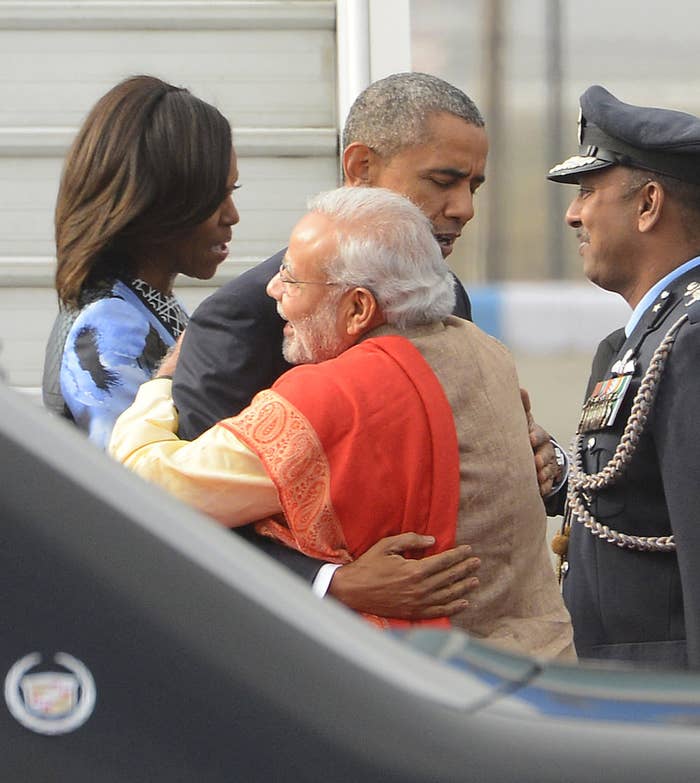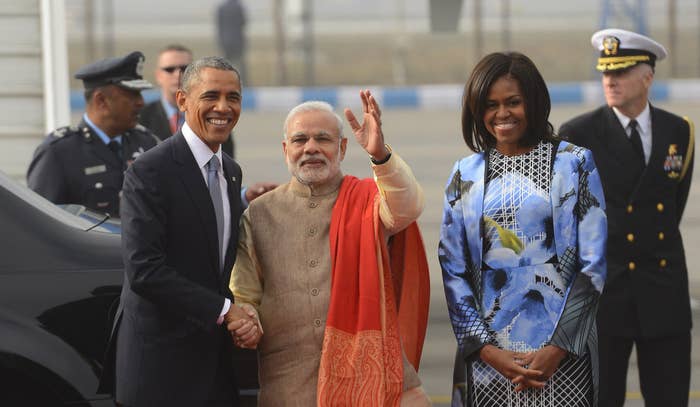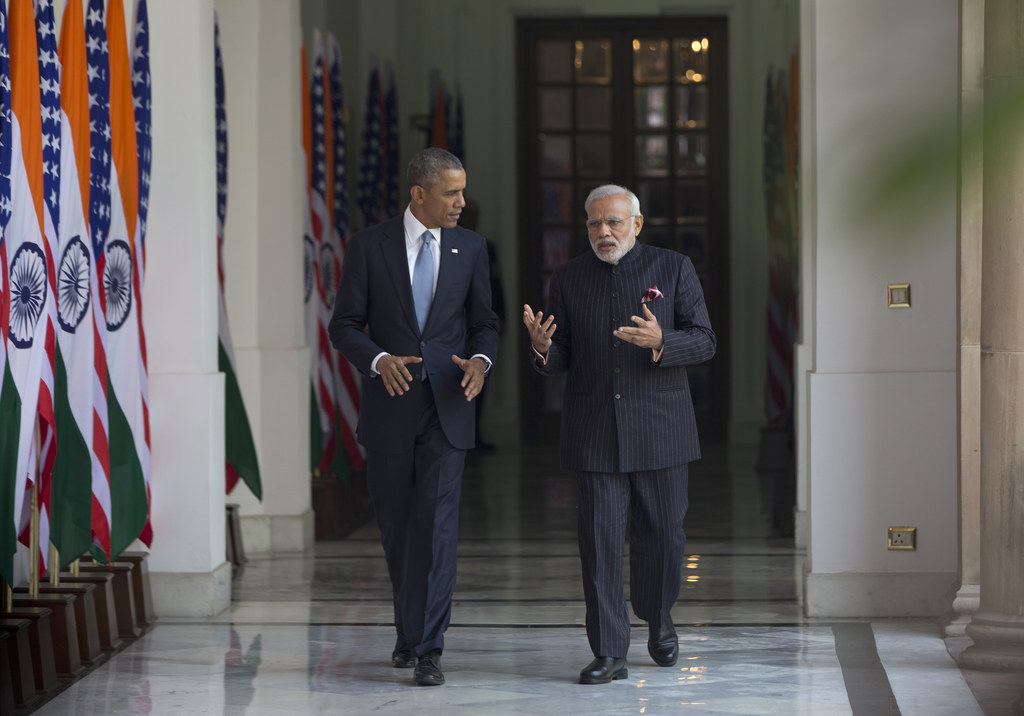As President Barack Obama bounded off Air Force One in New Delhi on Sunday, at the start of his second official visit to India, he was greeted with a bear hug from Prime Minister Narendra Modi, a man once blacklisted from the U.S. by the State Department.

The hug signaled a remarkable turnaround, not only in Modi's standing in the U.S. (where in 2005 he was persona non grata because of his failure to stop violence against Muslims in Gujarat state during his time as chief minister) but in India-U.S. relations.
A year ago, Indians were outraged after a female diplomat was arrested and strip-searched in New York City for allegedly exploiting her housekeeper. Devyani Khobragade, India's former deputy consul general in the city, left the U.S. in January of last year at the request of the State Department. Prime Minister Manmohan Singh called her treatment "deplorable."
Now, one year after that diplomatic nadir, Obama is to be the guest of honor at India's Republic Day celebrations on Monday — the first time a U.S. president has attended the parade. Obama is also the first sitting U.S. leader to visit India twice during his presidency, underscoring the country's strategic importance to Washington as it seeks to increase its presence in the Asia Pacific.
"It reflects the transformation in our relationship," Modi told reporters of Obama's second visit to his shores. "It shows your deep personal commitment to this partnership. It tells us that our two nations are prepared to step forward firmly to accept the responsibility of this global partnership for our two countries and toward shaping the character of this century."

The trip, however, is not all pomp and ceremony, with the two leaders on Sunday outlining a list of their behind-the-scenes progress, at the top of which was a "breakthrough" in a civil nuclear deal between the two countries that has long been stalled.
Despite a groundbreaking 2006 agreement, U.S. companies have been unable to invest in India's nuclear energy sector because of years of deadlock and disagreement over insurance liability and whether nuclear material shipped to the country would be tracked.
Since November, groups have been working behind the scenes to overcome these final obstacles to the billions of dollars in potential investment. On Sunday, President Obama announced a "breakthrough understanding."
It's understood that a large insurance pool will be established to address concerns over the liability of U.S. companies in the event of a nuclear accident.
U.S. Ambassador to India Richard Verma said the U.S. had received assurances that India will interpret liability in a manner that "comports with international understandings."
Companies would still be required to do their own independent risk assessments. "Ultimately it's up to the companies to go forward, but the two governments came to an understanding," Verma said.

On the issue of climate change, though, progress was less ambitious compared with the major deal President Obama struck with China last November.
The two leaders have established a "channel" for direct contact with one another on the issue, as they prepare for the U.N. climate summit in Paris for December. India is the third-highest emitter of carbon pollution behind the U.S. and China.
"The prime minister and I made a personal commitment to work together to pursue a strong global climate agreement in Paris," Obama told reporters. "Perhaps no country could potentially be more affected by the impacts of climate change, and no country is going to be more important in moving forward a strong agreement than India."
White House counselor John Podesta also said India has given its "full commitment" to cutting hydrofluorocarbons, or HFCs.
The U.S. president also praised India's pledge to boost energy from solar power. Modi has pledged his country will increase its production of the cleaner energy to 100,000 megawatts by 2022, from 3,000 currently, according to the New York Times.
Still, the trip so far has been marked by a jovial relationship between the two leaders, with Obama noting the "personal friendship" that they have been able to build "in a fairly brief amount of time."
In his toast at the state dinner held in his honor later on Sunday night, Obama quoted Walt Whitman's poem "Passage to India": "Seest though not God's purpose from the first? The earth to be spann'd, connected by network, the people to become brothers and sisters," Whitman wrote more than a century ago.
"Here, in our time, these words have come to pass," Obama said.

